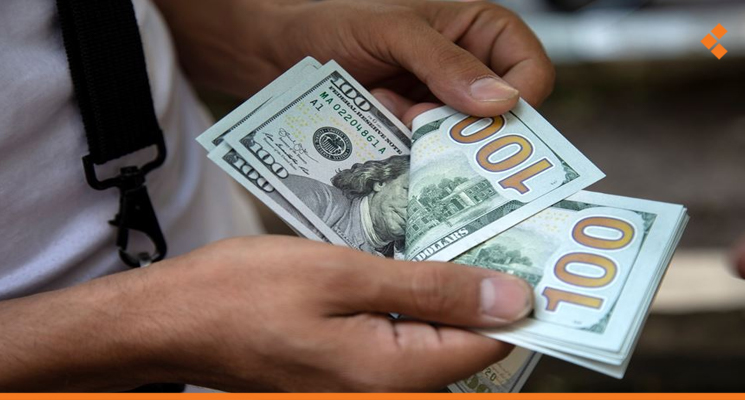The Central Bank of Syria has allowed private universities to collect tuition fees in foreign currency in specific cases, as long as it gets to sell 50% of the fees’ proceeds.
The Central Bank indicated in its decision No. 1458/LA, that the fees are collected in Syrian pounds from students who are Syrian residents, while they are collected in dollars or euros from non-resident Syrian students, as well as Arab and foreign ones.
According to the decision, students should pay university fees by installments in cash “Banknotes” in the university’s account with one of the Syrian banks. However, the bank buys 50 percent of the university’s revenues (resulting from university fees paid in installments) at the end of each month, according to the exchange rate of the Banking and Exchange Bulletin (2,525 Syrian Pounds for the greenback, as opposed to around 3,500 on the free market, editor’s note). This process happens on a working day following the date of the purchase, without entering these amounts within the operational center of the bank.
Read Also: Solid Waste Recycling, Promising Industry that Saves Foreign Exchange
The Central Bank allowed universities to keep the remaining 50 percent of the installments in its account, and use it (all or parts of it) to secure its import needs, and pay its obligations and expenses in foreign exchange. It could, if it wanted, sell the remaining quantity to the Central Bank.
The Central Bank obliged private universities to provide a detailed monthly statement of fees paid in foreign currency, and a copy of the 50 percent sale receipt to the approved bank. In case there were no revenues, the university is obliged to send a monthly statement also spelled out “there is no payment of fees”, with a monthly payment of the 5,000 Syrian pounds for checking commissions and statements (whether or not there are fees).
The Central Bank set a penalty in case of violation. For example, if the university submits its monthly statement after the set deadlines, collects fees in pounds instead of foreign currency installments, or does not deposit them with a Syrian bank.
The Minister of Higher Education, Bassam Ibrahim, had previously confirmed that his ministry did not agree to raise fees for private universities, except at a rate between 30-50 percent. The increase applies to new students only and does not apply to those registered with previous fees.
This article was translated and edited by The Syrian Observer. The Syrian Observer has not verified the content of this story. Responsibility for the information and views set out in this article lies entirely with the author.


